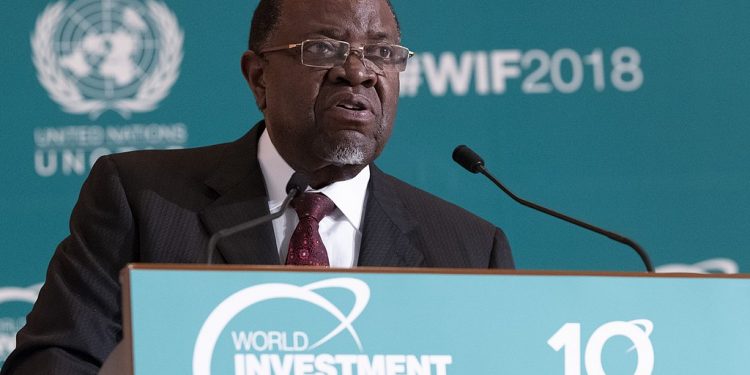Namibia has publicly criticized Germany for its decision to back Israel in the ongoing genocide case at the International Court of Justice (ICJ), brought by South Africa. This development occurs as the conflict in Gaza reaches its 100th day.
Namibian President Hage Geingob, in a statement, expressed strong disapproval of Germany’s stance. He accused Germany of defending Israel’s actions in Gaza and the occupied Palestinian Territories, which he characterized as genocidal and brutal against civilians. This statement comes amid escalating tensions and high casualties in the region.
The World Court, the highest legal body of the United Nations, held a two-day public hearing where South Africa and Israel presented their arguments. South Africa accused Israel of conducting a military operation aiming to destroy the population of Gaza, citing nearly 24,000 deaths as per Gaza health authorities. In contrast, Israel refuted these claims, challenging South Africa’s portrayal of the hostilities and denying any state-led genocide campaign against Palestinians.
President Geingob’s statement also referenced the internal displacement of a large portion of Gaza’s population and acute shortages in essential services, underlining the severe humanitarian crisis. He expressed deep concern over Germany’s rejection of what he termed the “morally upright indictment” by South Africa.
The Namibian presidency highlighted the historical context of Germany’s actions, referencing the early 20th century genocide in Namibia against the Herero and Nama people. The statement pointed out the paradox in Germany’s current position, considering its past and its commitment to the United Nations Convention against genocide.
President Geingob appealed to the German government to reconsider its involvement as a third-party supporting Israel in the ICJ case. He emphasized the need for a global recognition of the gravity of the situation in Gaza, calling for a reassessment of international support and intervention.
The ICJ, in the coming days, is expected to present provisional measures, but a final verdict may take years. South Africa has urged the court for an immediate halt to Israel’s military offensive in Gaza. The case is seen as a significant legal and moral debate, involving the definition of genocide as per the 1948 Genocide Convention and the international community’s response to such crises.
The case has drawn varied international responses, with several countries and organizations backing South Africa, while Israel receives support from the United States and other allies. Human Rights Watch and other global entities have also raised concerns about potential war crimes in Gaza, adding complexity to the international discourse on the conflict.



























